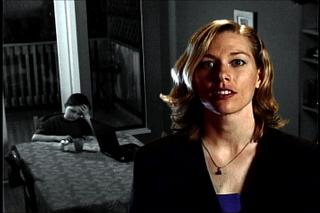Little Boy Blue

I’ve always been naturally inclined to question authority – especially when that authority (be it my own parents, a doctor, politician, or teacher) tells me I need to do something that doesn’t feel right to me.
So, when Adisen's kindergarten teacher, at our very first parent-teacher meeting informed us that Adisen was a challenging child to have in her class, that daily he interrupted her lectures with commentary that made other kids laugh, and that unless we “changed his personality” he would have trouble through his school years, I started to look into what the characteristics of a “good” personality for a 5-year old are. I mean, there would be no point in changing his personality to another “wrong” or “bad” personality, right?
I spent hours doing web searches to find the set of personality characteristics that would please an elementary school teacher. By the end of the day I hadn’t found a single definition for “the perfect child/student.” What I found was list after list of the kinds of behaviour that are not acceptable or desirable in a child. I also determined that my sweet son exhibited every single behaviour trait of a kid with ADHD and most of the personality traits of a child with bi-polar disorder. Oh – and that his behaviour was classic of gifted children.
I concluded that the only way I could give the teacher the student she wanted was to put Adisen on a psychoactive drug that would effectively change his five-year old personality. Problem was, I love all of Adisen's personality traits. When he argues with me, I envision him as a future lawyer. When he obsesses over building the perfect Lego character, I imagine him as a scientist. When he explodes into a rage that I’m not being fair, I see the human rights activist in him. All of his personality traits, as challenging as they sometimes are coming from a child, have the potential to serve him well as an adult. I simply could not imagine him as broken or sick, needing to be fixed or cured of the personality he was born with.
Sadly, millions of parents in the United States and around the world are convinced that that their young children would somehow be “better” if put on a prescription drug to alter their moods and behaviour. Over the past decade, the increase in the number of very young children placed on Ritalin or similar psychoactive medications has been staggering. Recent studies cite a 300 percent rise in the number of two- to four-year olds taking these medications and estimate that nearly 20 percent of school-aged children in the USA are taking personality changing drugs. In addition to the psychoactive drugs, in 2002 in the United States, over 11 million children were prescribed an anti-depressant.
So I made a film, called Little Boy Blue, with the hope that it would encourage parents, teachers and care-givers, doctors and soccer coaches, to discard the notion that there is a firm definition of how a model child behaves, to reject society’s template of what a “good” and “emotionally healthy” child looks like, and to embrace and accept that many different behaviours are good and healthy – even if those behaviours make it hard for teachers to manage a class, or for both parents to work full-time, or even if they expose deep flaws in the environments we as a society are forcing our kids to adapt to.
People are buying copies...it played in another festival this weekend...slowly but surely the message is getting out. I go to bed feeling grateful tonight.


1 Comments:
Our neighbor declined a play date with us recently because my 2.25 year old enjoy pushing her 1.5 year old's eyes in.
I can respect that.
I also wouldn't trade the devil that is my boy for the pre-fab angel that comes from a bottle.
Post a Comment
<< Home